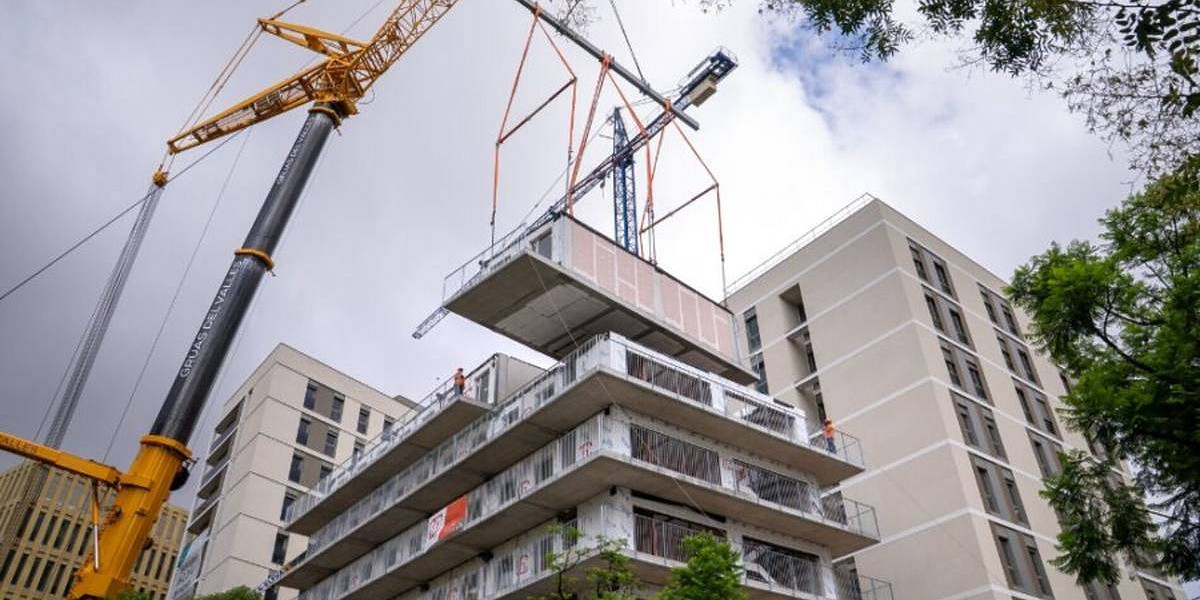Barcelona has taken a step forward in public housing construction by completing a 40-story building in just 10 days using prefabricated modules. The new development, located at 22-24 Avinguda Carrilet (in the Bordeta neighborhood), is primarily intended for young people and single-parent families. Municipal amenities and community spaces will occupy both the basement and first floors.
The key to success has been the installation of 48 fully factory-equipped three-dimensional modules, which greatly speeds up construction times. Once the structural assembly of the upper floors is complete, utility connections and the exterior finishes, terraces, and roofs will begin.
The overall construction time is around a year and a half, a significantly shorter period than usual for projects of this magnitude using conventional methods.
Deputy Mayor Jordi Valls praised the City Council and the Municipal Housing Institute's commitment to innovation, positioning Barcelona as a benchmark in the industrialized construction sector. To expand the public housing stock, Valls asserts, it is essential to have land, financing, public-private partnerships, and a clear commitment to productivity and innovation.
The apartments are distributed between the second and ninth floors, while the lower floors will house community spaces and municipal facilities. Each floor will have five apartments; residents will have access to common services such as a kitchen-dining room, laundry room, multipurpose rooms, and a communal terrace. The investment exceeds €6.7 million, and completion is scheduled for the end of 2026.
The manufacturing of the modules in parallel with the construction work allows for optimized processes and reduced timescales. The modules arrive equipped with a bathroom, kitchen, windows, and fixtures, which facilitates rapid assembly and reduces occupational hazards, waste generation, and dependence on weather conditions.
With this model, Barcelona will have 421 public housing units built using industrialized systems, spread across nine developments.
Currently, 207 have been delivered, 54 are temporary APROP housing units, 51 will be delivered soon, and 109 are in various stages of construction. This methodology, well-established in Northern Europe, is emerging as an efficient, safe, and sustainable solution for the growth of the city's social housing stock.

